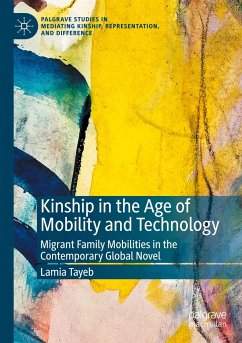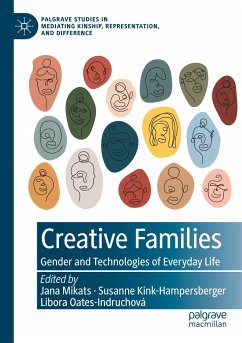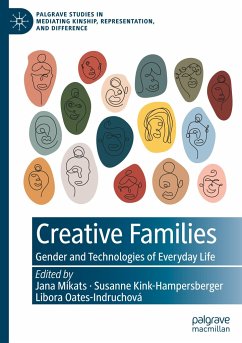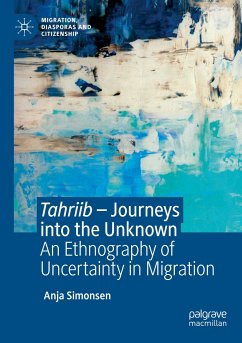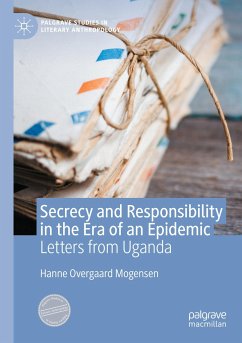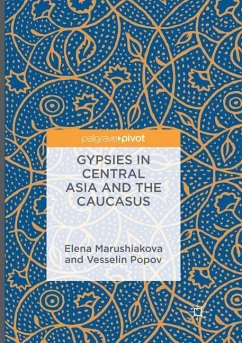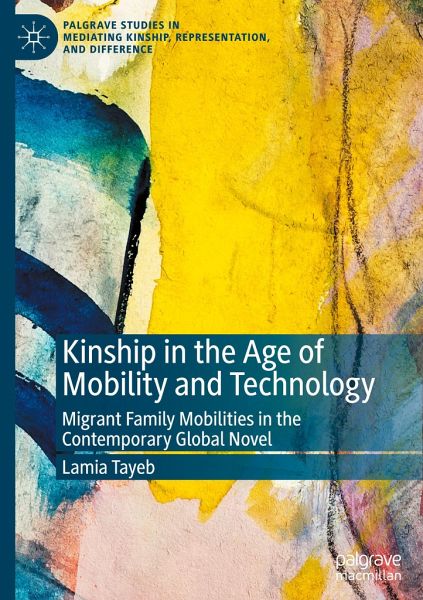
Kinship in the Age of Mobility and Technology
Migrant Family Mobilities in the Contemporary Global Novel
Versandkostenfrei!
Versandfertig in 6-10 Tagen
117,69 €
inkl. MwSt.
Weitere Ausgaben:

PAYBACK Punkte
0 °P sammeln!
This volume aims to address kinship in the context of global mobility, while studying the effects of technological developments throughout the 20th century on how individuals and communities engage in real or imagined relationships. Using literary representations as a spectrum to examine kinship practices, Lamia Tayeb explores how transnational mobility, bi-culturalism and cosmopolitanism honed, to some extent, the relevant authors' concerns with the family and wider kinship relations: in these literatures, kinship and the family lose their familiar, taken-for-granted aspect, and yet are still...
This volume aims to address kinship in the context of global mobility, while studying the effects of technological developments throughout the 20th century on how individuals and communities engage in real or imagined relationships. Using literary representations as a spectrum to examine kinship practices, Lamia Tayeb explores how transnational mobility, bi-culturalism and cosmopolitanism honed, to some extent, the relevant authors' concerns with the family and wider kinship relations: in these literatures, kinship and the family lose their familiar, taken-for-granted aspect, and yet are still conceived as 'essential' spheres of relatedness for uprooted individuals and communities. Tayeb here studies writings by Hanif Kureishi, Zadie Smith, Monica Ali, Jhumpa Lahiri, Khaled Housseini and Nadia Hashimi, working to understand how transnational kinship dynamics operate when moved beyond the traditional notions of the blood relationship, relationship to place and identification with community.





